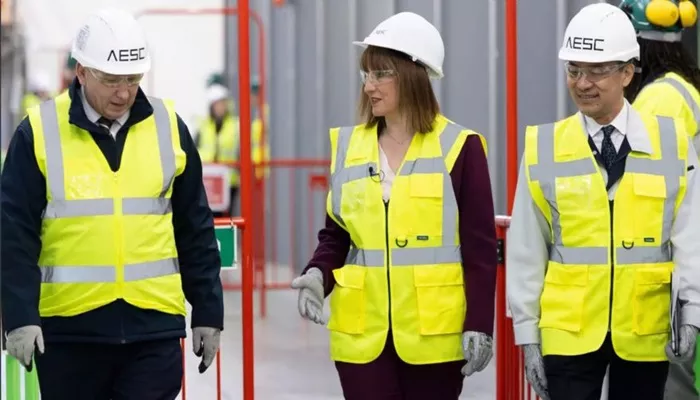A new gigafactory by Automotive Energy Supply Corporation (AESC) will be built in Sunderland. The factory will have the capacity to produce batteries for up to 100,000 electric vehicles (EVs) every year. This is six times more than the UK’s current battery production capacity. The factory aims to make the UK more competitive in the global EV market by increasing the production and sale of British electric vehicles both domestically and internationally.
The project is expected to create 1,000 new jobs at the Sunderland facility. This comes from a £1 billion automotive deal focused on speeding up the shift to electric vehicles and encouraging economic growth.
In this major deal, the National Wealth Fund and UK Export Finance will provide financial guarantees. These guarantees unlock £680 million in loans from banks such as Standard Chartered, HSBC, SMBC Group, Societe Generale, and BBVA. The funds will cover the construction and operation of the new plant.
The remaining £320 million will come from private financing and new equity from AESC. Founded in Japan in 2007, AESC is a joint venture between Nissan and Tokin Corporation that manufactures lithium-ion batteries for EVs. Alongside this £1 billion investment, the UK Government’s Automotive Transformation Fund is also contributing £150 million in grant funding.
Government Officials Highlight Economic and Environmental Benefits
Rachel Reeves, Chancellor of the Exchequer, said the government is moving “further and faster” to strengthen industry resilience and growth through its Plan for Change. She added that the Sunderland investment will promote innovation, speed up the shift to sustainable transport, and create well-paid jobs in the North East.
Jonathan Reynolds, Business and Trade Secretary, stated that the investment shows confidence in the North East’s automotive manufacturing sector. He emphasized that the gigafactory will secure 1,000 good jobs and increase prosperity in the region. Reynolds also highlighted the government’s Industrial Strategy, which supports growth in advanced manufacturing and aims to bring jobs and investment across the UK.
AESC CEO Shoichi Matsumoto said the investment is a key step in supporting the UK’s goal of decarbonisation and expanding its EV market. He added that by working with strategic partners, AESC aims to speed up this transition while creating high-quality local jobs and building strong, sustainable supply chains.

